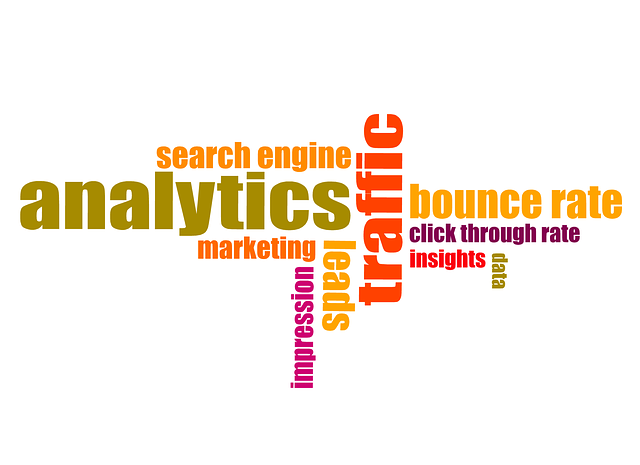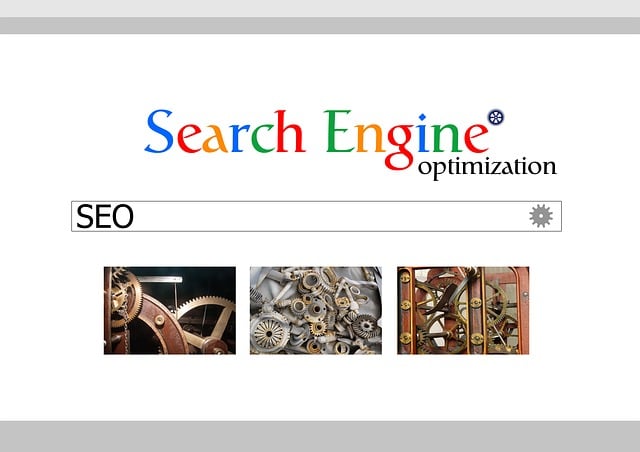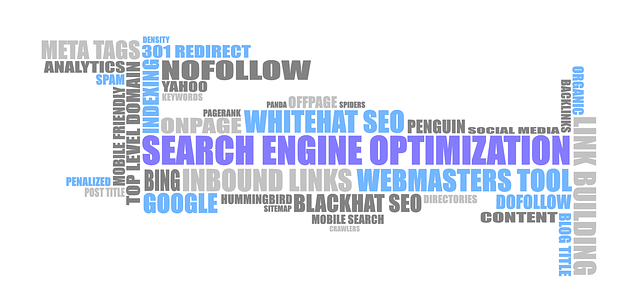Cost-effective SEO is a strategic digital marketing approach that leverages organic search results to maximize website visibility and reach for minimal investment, particularly benefiting small businesses and startups. By understanding search engines, implementing practices like on-page optimization, high-quality content creation, link building, and tracking success via tools like Google Analytics, businesses can achieve increased traffic, brand awareness, conversion rates, and sustained marketing efforts. SEO offers numerous advantages, including cost-effectiveness compared to other channels, improved online visibility, higher organic traffic, enhanced user experience, and long-term brand authority, ultimately driving ROI and keeping pace with evolving search engine landscapes.
In the digital marketing landscape, cost-effective strategies are key to success. Among these, Search Engine Optimization (SEO) stands out as a powerful tool for driving organic traffic and boosting online visibility. This article explores the benefits of Search Engine Optimization, delving into essential aspects like on-page optimization, off-page link building, and algorithmic adaptation. By understanding and implementing cost-effective SEO tactics, businesses can enhance their digital presence without breaking the bank. Discover how to attract targeted audiences, measure success, and integrate SEO with other marketing channels for optimal results.
Understanding Cost-Effective SEO: A Definition

Cost-effective SEO, at its core, is a strategic approach to digital marketing that maximises the visibility and reach of a website through organic search engine results, focusing on delivering tangible results with minimal investment. It involves a deep understanding of how search engines work and utilising techniques to enhance a site’s ranking without breaking the bank. This strategy is particularly appealing to small businesses and startups with limited budgets, allowing them to compete in a crowded online marketplace.
By implementing cost-effective SEO practices, businesses can unlock numerous benefits, including increased website traffic, improved brand awareness, and higher conversion rates. It enables companies to connect with their target audience organically, building trust and credibility over time. This long-term strategy ensures that marketing efforts are sustainable and delivers a strong return on investment, making it an essential component in any modern marketing plan.
The Role of Search Engine Optimization in Digital Marketing

Search Engine Optimization (SEO) plays a pivotal role in modern digital marketing strategies, acting as a cornerstone for driving organic traffic and enhancing online visibility. By understanding how search engines crawl and index websites, businesses can optimize their content to rank higher on search engine results pages (SERPs). This, in turn, brings a multitude of benefits, including increased brand awareness, improved user experience, and higher conversion rates.
SEO is not just about optimizing for keywords; it involves a comprehensive approach that includes on-page optimization, high-quality content creation, link building, and technical improvements. By implementing these strategies, businesses can attract their target audience more effectively, as search engines prioritize delivering relevant results to users’ queries. Consequently, a robust SEO strategy can significantly reduce marketing costs while yielding long-lasting results.
Key Advantages of Implementing SEO Strategies

Implementing Search Engine Optimization (SEO) strategies offers a plethora of benefits that can significantly boost your online visibility and drive organic traffic to your website. One of the key advantages is its cost-effectiveness compared to other marketing channels. SEO is an ongoing process that focuses on optimizing content, site structure, and user experience to rank higher in search engine results pages (SERPs). Unlike paid advertising, where costs can quickly accumulate, SEO provides long-term value by improving your website’s organic reach. Over time, this can lead to increased brand awareness, more qualified leads, and a higher return on investment.
Additionally, SEO strategies enhance the overall user experience, which is crucial for retaining visitors and encouraging them to explore your site further. By optimizing content and ensuring fast loading times, mobile-friendliness, and easy navigation, you create a seamless journey for your audience. Such improvements not only boost search engine rankings but also contribute to higher engagement rates and improved customer satisfaction. This holistic approach ensures that your marketing efforts are not only cost-effective but also aligned with providing value to your target audience.
Attracting Organic Traffic: A Cost-Saving Approach

Attracting organic traffic through search engine optimization (SEO) is a cost-saving approach that offers numerous benefits. By focusing on enhancing your website’s visibility and ranking in search engine results pages, you can attract potential customers who are actively searching for products or services related to your business. This strategy eliminates the need for costly paid advertising campaigns, as it leverages natural search results to drive targeted traffic to your site.
SEO involves optimizing various elements of your website, including content, keywords, metadata, and site structure, to align with search engine algorithms. By consistently creating valuable, relevant, and optimized content, you can build a strong online presence that resonates with your target audience. This long-term strategy not only saves money but also establishes your brand as an authority in your industry, fostering trust and credibility among potential customers.
On-Page Optimization: Maximizing Your Website's Potential

On-Page optimization is a fundamental aspect of cost-effective SEO marketing, where the focus shifts to enhancing your website’s content and structure to align with search engine algorithms. By maximizing on-page elements, you can significantly improve your site’s visibility and ranking potential. This involves optimizing key components such as keyword placement, high-quality content creation, and meta tag refinement. Integrating relevant keywords naturally into headings, subheadings, and body text ensures search engines understand the context of your website, thereby increasing its relevance for targeted search queries.
Additionally, on-page optimization includes ensuring proper image optimization with alt tags, improving page load speed, and implementing structured data markup. These techniques not only enhance user experience but also send powerful signals to search engines, highlighting the value and quality of your online content. The benefits of such strategic on-page optimization are multifaceted; it can drive organic traffic, improve click-through rates from search engine results pages (SERPs), and establish a strong foundation for long-term SEO success.
Off-Page Tactics for Building Quality Backlinks

Building high-quality backlinks is a cornerstone of effective Search Engine Optimization (SEO), offering numerous benefits that enhance your website’s visibility and authority. Off-page tactics, which focus on actions taken outside your site, play a pivotal role in this process. One powerful strategy involves engaging with influential figures and reputable sources within your industry. By contributing valuable content, such as guest blogging or providing expert insights, you can secure backlinks from authoritative websites, significantly boosting your site’s credibility.
Additionally, social media participation is an often-underutilized yet effective off-page SEO tool. Actively sharing and engaging with relevant content on platforms like Twitter, LinkedIn, or industry-specific forums not only increases brand awareness but also attracts organic links back to your site as users and influencers alike recognize and reference your work. This strategy leverages the power of social proof, further strengthening your website’s position in search engine results.
Measuring Success: Analyzing SEO Metrics and ROI

Measuring success is a vital aspect of any marketing strategy, and SEO is no exception. By analyzing key metrics, businesses can understand the true value of their Search Engine Optimization efforts. One of the primary focuses should be on tracking organic traffic growth, as this indicates the increased visibility and reach of your online content. Tools like Google Analytics provide insights into keyword rankings, click-through rates (CTRs), and average session durations, all of which contribute to gauging the effectiveness of your SEO campaign.
The return on investment (ROI) is another critical metric that demonstrates the financial benefits of SEO. High-quality content optimized for relevant keywords can lead to improved user engagement, reduced bounce rates, and increased conversion rates. By converting more visitors into customers or leads, businesses can directly attribute their SEO investments to tangible results. This data-driven approach allows marketers to refine strategies, prioritize valuable keywords, and make informed decisions to maximize the benefits of Search Engine Optimization.
Staying Ahead: Adapting to Algorithmic Changes

In the ever-evolving digital landscape, staying ahead in search engine rankings is paramount for any business aiming to maximize its online visibility and attract potential customers. Search engines like Google regularly update their algorithms, which can significantly impact a website’s ranking factors. To stay relevant, businesses must adapt to these changes swiftly. Benefits of Search Engine Optimization (SEO) extend beyond initial investments; it’s an ongoing process that requires strategic thinking and agility.
By closely monitoring algorithm updates, SEO professionals can implement necessary adjustments to content strategy, keyword optimization, and site structure. This proactive approach ensures that a website remains competitive, providing users with the most relevant and valuable information. Adaptability is key; as search engines become more sophisticated in understanding user intent, so too must marketing strategies evolve to keep pace with these advancements.
Integrating SEO with Other Marketing Channels

Integrating Search Engine Optimization (SEO) with other marketing channels is a powerful strategy that amplifies the benefits of SEO, such as increased visibility and organic traffic. By intertwining SEO with social media, email campaigns, and content marketing, businesses can create a cohesive and effective promotion network. For instance, sharing optimized blog posts on social media platforms enhances their reach, while linking social media profiles within website content improves both SEO and user engagement.
Moreover, leveraging email marketing to send targeted newsletters featuring SEO-rich articles helps build a loyal audience and drives more qualified leads to the website. This integrated approach not only strengthens each channel’s performance but also provides a holistic view of customer interactions, allowing for data-driven optimizations that continually enhance the overall marketing strategy and deliver tangible results.
